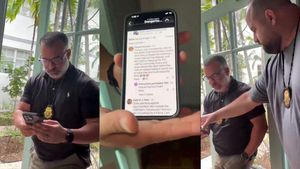Tara and Tony have been married for over ten years, and they have had some ups and downs in their relationship along the way.
When Tony gets angry, Tara reminds herself that it’s not easy for him. She has been living with HIV throughout their marriage, and Tara often feels lucky that Tony was willing to go ahead with marrying her, knowing about her diagnosis. You know, that feeling that your HIV status makes you damaged goods. In fact, truth be told, Tony has been known to remind Tara that she’s lucky when he is angry at her about something.
Last week, Tony became especially angry at Tara when she asked him to take charge of getting their two children ready for bed. “Are you kidding?” Tony had asked. “After having to work overtime today?” Tara tried to apologize for making this request, but Tony wouldn’t listen. “An excuse to be lazy,” he yelled. To make his point, he threw a bottle of water at her, hitting her in the arm.
The next day, Tara’s sister, Jane stopped by unexpectedly. Tara forgot to put on a sweater before she opened the door, and Jane noticed right away that she had a bruise on her arm. After pressuring Tara to tell her what happened, Tara filled her in. “He was just frustrated. And it was my fault,” Tara insisted. “I should have pushed myself harder to handle my chores. By the way, this is the first time he has ever gotten physical with me.”
“Tara,” Jane said, “This is not just anger. Tony has abused you emotionally and now physically. I hope you will stop making excuses for him and take care of yourself.”
So a question: When does anger turn into abuse?
To answer this question, let’s start by defining the different kinds of abuse. It’s not all about bruises. As Jane said to Tara, abuse can be emotional, with accusations, humiliation, and criticism. Abuse can be physical, a shove or a slap, or throwing something. Abuse can also be financial, as when money is withheld, spending is overly controlled or, on the other hand, excessive debt is incurred. Abuse can also be sexual, forcing sex, withholding sex.
So how do you know that you, or someone else, is being abused? Here are a few of the signs:
• Being made to feel bad about yourself, criticized or ridiculed
• Making excuses for the person doing the abuse, e.g. “this is the first time it happened” or “their just frustrated.”
• “Walking on eggshells” with your partner to avoid angry outbursts
• Hiding bruises or other signs of injury
• Making elaborate explanations to avoid accusations or jealousy
• Being expected to apologize for something you have not done or have no control over, like when your not feeling well and having a have a bad day
If you feel that you are being abused, here are some of the things you can do:
Sit down and have a talk with the person who is abusing you. Give them specific examples of when you felt you were being abused. Let them know how this makes you feel and why you view this behavior as abusive. Make it clear that abusive behavior is not acceptable. And ask them to change their behavior. (Keep in mind that we can’t force other people to change, and the abusive person may or may not respond.)
Stop making excuses. Abusive behavior is abusive behavior. You didn’t cause it. And there is no valid reason for one person to abuse another. Your HIV status — regardless of the impact it may have on your partner — is definitely no reason for you to be abused. When you stop making excuses for abusive behavior, you empower yourself to take further action if needed. You are a person, not a punching bag.
Get emotional support. Gather your support network around you. Family members and friends who can provide a listening ear, a shoulder to cry on, and the encouragement you aren’t getting from your partner. The people who care about you want the best for you, and that support may come with some tough love, so be prepared.
Get professional support. If you are in an abusive relationship, I highly recommend that you sit down and talk things out with a counselor. A mental health professional can provide an objective perspective on the situation, and also help you to develop some coping skills, as well as to develop a safety plan to protect yourself. By the way, if you can bring your partner along with you, and get some couples counseling, so much the better.
Caution: Abusive behavior can escalate over time. As you saw in Tara’s situation, Tony’s emotional outbursts had not previously been physical. And then they were. Once that boundary into physical abuse has been crossed, it can increase in frequency and intensity over time. Another reason not to make excuses for an abusive partner and to take care of yourself. If you are in physical danger, do some research online on how to create a safety plan for yourself. Get familiar with resources in your own community for victims of abuse. Also check out The National Domestic Violence Hotline, https://www.thehotline.org as well as The Network/La Red, which is a social justice organization focused on domestic violence in the LGBTQ+ community, https://www.tnlr.orgv. And don’t hesitant to dial 911 if you are in immediate danger.
Remember: Any kind of abusive behavior, verbal or physical, can take a toll on your health and well-being. So as the saying goes, if you see something, say something. Call it out for what it is. And take good care of yourself. You deserve to be treated with kindness and respect by your partner, so seize your power!
Gary McClain, PhD, is a therapist, patient advocate, and educator, specializing in helping clients deal with the emotional impact of chronic and life-threatening health conditions, as well as their families and professional caregivers. He works with them to understand and cope with their emotions, to learn about their lifestyle and treatment options, to maintain compliance with medical regimens, to communicate effectively with each other and healthcare professionals, and to listen to their own inner voice as they make decisions about the future. His website is JustGotDiagnosed.com.







































































